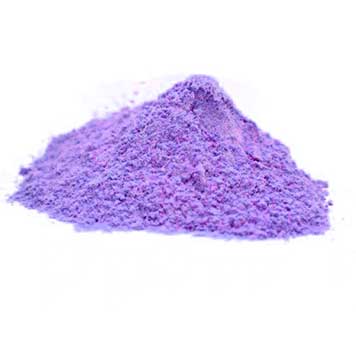
natural preservatives for food
Natural Preservatives for Food The Key to Healthier Eating
In today's health-conscious society, the importance of maintaining a balanced diet without the burden of artificial additives has gained significant attention. As consumers become more aware of what goes into their food, the demand for natural preservatives has surged. These substances not only extend the shelf life of food products but also enhance flavor and retain nutritional value.
Understanding Preservatives
Preservatives are substances added to food to prevent spoilage caused by microbes, oxidation, or other factors. Traditionally, many food preservatives were synthetic, carrying the risk of potential health hazards associated with long-term consumption. However, natural preservatives, derived from plant, animal, or mineral sources, have emerged as a safer alternative, appealing to both manufacturers and consumers.
Common Natural Preservatives
1. Salt One of the oldest known preservatives, salt works through the process of osmosis, drawing moisture out of food and creating an inhospitable environment for bacteria. It's commonly utilized in the preservation of meats and fish, contributing to their distinct flavors while prolonging their shelf life.
2. Sugar Sugar acts as a preservative by inhibiting the growth of microorganisms. It is widely used in jamming and canning practices. The high sugar concentration creates an environment where bacteria cannot thrive, effectively preserving the fruit's essence and flavor.
3. Vinegar The acetic acid in vinegar is effective in preventing spoilage. Often used in pickling, vinegar not only prolongs the shelf life of fruits and vegetables but also imparts a unique tangy flavor that enhances the food's overall appeal.
4. Lemon Juice The high acidity of lemon juice makes it a powerful natural preservative. It is particularly effective in preventing the browning of cut fruits and vegetables, making it a staple in many culinary practices. Its antioxidant properties also help to preserve the freshness of the food.
5. Essential Oils Certain essential oils, such as rosemary, clove, and oregano, possess antimicrobial properties. They can be used as a natural alternative to synthetic preservatives in various food products, enhancing flavor while providing preservation benefits.
natural preservatives for food

6. Honey With its low moisture content and acidic pH, honey has been used for centuries as a natural preservative. Its natural antibacterial properties make it particularly effective in preventing spoilage in baked goods and confections.
7. Tocopherols (Vitamin E) This naturally occurring antioxidant extends the shelf life of food by minimizing oxidation, preserving fats and oils from becoming rancid. Tocopherols are found in various seeds, nuts, and vegetable oils and are widely used in processed foods.
Benefits of Natural Preservatives
The utilization of natural preservatives offers numerous benefits, both to food manufacturers and consumers. Firstly, they cater to the rising consumer demand for clean-label products—food items made without synthetic chemicals. This transparency builds trust and loyalty among consumers who prioritize health and well-being.
Furthermore, natural preservatives often come with added health benefits, such as antioxidants that may enhance the nutritional profile of foods. By choosing products that incorporate these substances, consumers can enjoy longer-lasting food options without compromising on health.
Challenges and Considerations
While natural preservatives are advantageous, they do come with their own set of challenges. Their effectiveness can vary widely depending on the type of food and the concentration used. Additionally, shelf-life extension might not match the capabilities of synthetic preservatives, necessitating careful formulation by food manufacturers.
Moreover, the cost associated with sourcing high-quality natural preservatives can be higher than that of synthetic alternatives. This may lead to increased prices for consumers, posing a potential barrier to widespread adoption in certain market segments.
Conclusion
As the demand for healthier food choices continues to rise, the role of natural preservatives becomes increasingly vital. They offer a sustainable solution to food preservation, aligning with modern dietary preferences while ensuring quality and safety. As companies and consumers alike embrace this shift towards natural ingredients, it is evident that the future of food preservation lies in the power of nature. By prioritizing natural solutions, we can create a healthier food ecosystem that benefits both people and the planet.
-
Understanding Synthetic Rubber OptionsNewsApr.27,2025
-
Trichloroisocyanuric Acid: Essential for Clean and Safe WaterNewsApr.27,2025
-
Sodium Dichloroisocyanurate: Key to Safe Water TreatmentNewsApr.27,2025
-
Sodium Acid Pyrophosphate: Essential in Modern Food ProcessingNewsApr.27,2025
-
Essential Water Treatment ChemicalsNewsApr.27,2025
-
Denatured Alcohol and Its Industrial UsesNewsApr.27,2025
-
The Versatile Uses of Sodium BicarbonateNewsApr.24,2025
Hebei Tenger Chemical Technology Co., Ltd. focuses on the chemical industry and is committed to the export service of chemical raw materials.
-

view more DiethanolisopropanolamineIn the ever-growing field of chemical solutions, diethanolisopropanolamine (DEIPA) stands out as a versatile and important compound. Due to its unique chemical structure and properties, DEIPA is of interest to various industries including construction, personal care, and agriculture. -

view more TriisopropanolamineTriisopropanolamine (TIPA) alkanol amine substance, is a kind of alcohol amine compound with amino and alcohol hydroxyl, and because of its molecules contains both amino and hydroxyl. -

view more Tetramethyl Thiuram DisulfideTetramethyl thiuram disulfide, also known as TMTD, is a white to light-yellow powder with a distinct sulfur-like odor. It is soluble in organic solvents such as benzene, acetone, and ethyl acetate, making it highly versatile for use in different formulations. TMTD is known for its excellent vulcanization acceleration properties, which makes it a key ingredient in the production of rubber products. Additionally, it acts as an effective fungicide and bactericide, making it valuable in agricultural applications. Its high purity and stability ensure consistent performance, making it a preferred choice for manufacturers across various industries.











